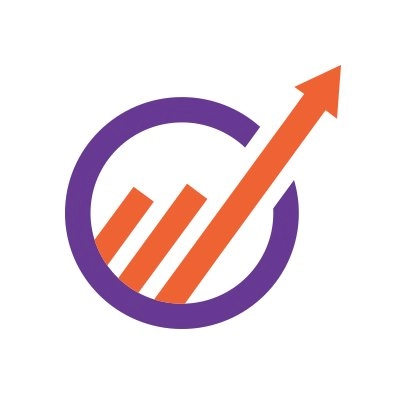6 Best Lead Scoring Software for 2024
Written by
Aron Vaughan, Staff Writer
Read more by Aron →
Reviewed by
Corey Noles, Managing Editor
Read more Sales content →
Written by
Aron Vaughan, Staff Writer
Read more by Aron →
Reviewed by
Corey Noles, Managing Editor
Read more Sales content →
In this article...
What is lead scoring?
The way businesses conduct online commerce is changing. Productivity is now expected to be more disciplined and more efficient. The sales team doesn’t need to talk to every lead; they only need to talk to the right leads. This new focus requires marketers to be more judicious in who they select for sales, which has made lead quality a priority for 74% of B2B marketers. And the introduction of artificial intelligence (AI) has only made lead scoring more effective.
In this guide, we’ll help you understand the different types of lead scoring available, how to create executive buy-in for a purchase and how to choose the best lead scoring software for your business.
Based on our evaluation of more than 25 software options, here are our top choices for lead scoring solutions in 2024:
Featured Partners
What is the best lead scoring software?
Salesforce Marketing Cloud — Best for enterprises
Pros
Cons

Our Rating: 4.5/5
Salesforce Marketing Cloud is a lead scoring software designed for businesses aiming to improve their marketing efforts and sales alignment.
It automates lead management, scoring leads based on interactions and behaviors to efficiently prioritize engagement. Its standout feature is the seamless integration with Salesforce CRM, facilitating enhanced lead data management and a cohesive customer engagement strategy. Recent updates have improved automation features and the user interface, simplifying the creation of personalized lead nurturing paths.
While the starting price of $1,250/month for up to 10,000 contacts places it in the higher price range, its comprehensive features, including advanced email analytics and landing page testing, make it a valuable tool for medium to large enterprises focused on refining their lead scoring and nurturing processes.
HubSpot Marketing Hub — Best for ease of use
Pros
Cons

Our Rating: 4.5/5
HubSpot Marketing Hub is a software tool designed to help businesses attract visitors, convert leads, and close customers.
It combines various aspects of digital marketing into one platform, including email marketing, social media management, and creating web pages. Essentially, it’s a toolbox that businesses use to manage their online marketing efforts more efficiently. The software is known for being user-friendly, making it accessible even to those who aren’t tech-savvy. It integrates with HubSpot’s CRM, allowing for seamless management of customer data and interactions.
ActiveCampaign — Best for analytics
Pros
Cons

Our Rating: 4.5/5
ActiveCampaign serves as a software tool designed for businesses to score and prioritize leads based on their activities and engagement.
It integrates with CRM to streamline lead management and uses automated processes to adjust scoring. Features include tracking website visits, email interactions, and automating marketing communications based on lead behavior.
Freshsales — Best for overall lead management
Pros
Cons

Our Rating: 4.3/5
Freshsales, part of the Freshworks product suite, is a customer relationship management (CRM) software designed to help businesses manage their interactions with current and potential customers. Launched in 2016, Freshsales was created to offer a more intuitive, user-friendly CRM solution compared to traditional options available in the market, with a strong focus on usability and automation.
The platform encompasses a wide range of features aimed at improving sales efficiency and productivity, including lead scoring, email tracking, sales pipeline visualization, and advanced analytics. It’s built to cater to the needs of sales teams of all sizes, providing them with tools to capture leads, nurture customer relationships, and close deals faster.
Some of the latest updates have focused on leveraging artificial intelligence (AI) for sales forecasting, enhancing lead scoring models, and integrating more deeply with other tools in the Freshworks ecosystem, such as Freshdesk for customer support and Freshmarketer for marketing automation.
EngageBay — Best for SMBs
Pros
Cons

Our Rating: 4.3/5
EngageBay emerged as a relatively new player in the CRM and marketing automation arena, founded with the mission to offer small to medium-sized businesses an affordable, all-in-one solution for their sales, marketing, and service needs. The software is designed to simplify complex processes like lead scoring, enabling businesses to easily identify and prioritize their most promising leads based on engagement and behavior.
At its core, EngageBay focuses on lead scoring by automating the process of evaluating leads. It uses criteria such as website activity, email engagement, and demographic information to score leads, thereby helping businesses focus their efforts on leads most likely to convert. This functionality is particularly valuable for sales teams looking to optimize their funnel and ensure they are engaging with the right prospects at the right time.
One of EngageBay’s key selling points is its affordability, providing a suite of powerful features without the hefty price tag associated with some of its competitors. With EngageBay, businesses can enjoy features like email marketing, landing pages, live chat support, and, of course, advanced lead scoring and segmentation, all within a user-friendly interface.
Despite being newer to the market, EngageBay has quickly established itself as a formidable alternative to more established names like HubSpot, offering comparable functionality tailored to the needs and budgets of smaller businesses.
SharpSpring — Best for flexible pricing
Pros
Cons

Our Rating: 4.3/5
SharpSpring’s blend of affordability, flexibility, and a comprehensive feature set makes it a compelling lead scoring software choice for marketing agencies and SMBs aiming to boost their sales and marketing efficiency.
SharpSpring’s user-friendly approach to lead nurturing and management, highlighted by features like the Visitor ID and campaign tracking, allows sales teams to identify ready leads efficiently. The platform’s CRM integration capabilities further streamline client management, making it easier for businesses to maintain a cohesive view of their sales process.
In comparison to competitors such as HubSpot, SharpSpring is seen as targeting a different type of business, with a particular focus on agencies managing marketing campaigns for clients. While HubSpot offers an intuitive and easy-to-use platform that may become costly for large teams, SharpSpring provides a more budget-friendly option without sacrificing functionality or user experience.
Find your new lead scoring software
Key components of lead scoring software
With the right lead scoring software, you can assign a value to each profile in your database based on factors like company size or recent behavior on your website.
Key components of lead scoring software encompass a range of functionalities designed to automate and refine the process of evaluating and prioritizing leads. These components are essential for businesses aiming to optimize their sales funnel and ensure their sales teams focus on the most promising prospects. Here is an overview of these critical features:
What are the types of lead scoring
1. Traditional/rules-based
Rules-based or “traditional” lead scoring consists of assigning a numerical value to characteristics of and behaviors exhibited by people in your marketing database. These rules are defined by the marketer, with strong input from sales.
Marketo breaks rules-based scoring into two categories based on respective data types: implicit and explicit.2 Implicit lead scoring refers to tracking and quantifying a prospect’s behavior on your website. The classic example is when someone views your product page versus your careers page. One behavior implies interest in your product and should trigger an increase in lead score. At the same time, the other indicates an interest in working for your company and should trigger a negative score.
Explicit lead scoring refers to assigning a score based on information someone volunteers when they fill out a form — the number of employees at their company or their marketing budget, for example.
Rules-based lead scoring has been around for some time, and it’s now a standard feature in most marketing automation platforms. A traditional scoring framework can be pivotal to increasing the quality of leads you pass over to sales. Still, it is not, strictly speaking, the type of framework you will find in the products termed lead scoring software.
2. Predictive lead scoring
As the market stands today, lead scoring software is synonymous with predictive lead scoring. Predictive scoring differs from rules-based scoring in that it relies on predictive modeling to identify which leads are best suited for your sales team to pursue. These point solutions provide a more complex form of scoring based on machine learning and algorithmic prediction.
How, specifically, does this work? The scoring software builds a predictive model using the data in your CRM and marketing automation system to identify which series of behaviors and lead characteristics your closed/won accounts share.
The system then augments this internal data with external sources to construct a more complete lead profile. Infer, a predictive scoring vendor, describes it this way: “Infer uncovers thousands of signals such as employee count, job openings, web presence, social presence, technology vendors, patents, trademarks, and more.”
In theory, predictive lead scoring has several advantages of over rules-based lead scoring.
- No more guesswork: Anecdotes from sales and small ad-hoc correlations form the foundation of many rules-based frameworks. Predictive scoring builds a statistical model to isolate the most important leads.
- More complete data: Traditional lead scoring relies only on internal data — the data sales enter into the CRM and the information marketing automation grabs from a person’s onsite behavior and form downloads. Because predictive scoring vendors bake in additional information from multiple outside sources, the predictive model can identify previously hidden factors contributing to your ideal lead profile.
- Better scale: Rules-based scoring is difficult to scale, because as the company grows and changes, manual corrections must be made to the framework. With predictive scoring, the model can correct itself based on the changing behavior of your audience.
Also read: What is Lead Management?
Are you equipped for predictive lead scoring?
Rules-based lead scoring is often available as part of a larger platform, like marketing automation or even customer relationship management software. What the market now refers to as “lead scoring software” usually indicates software with the predictive capabilities mentioned above.
The market for this software is still small, with only twenty or so products centering their value proposition around predictive lead scoring. These products are standalone applications, which means they need other platforms to supply their predictive models with data. Because lead scoring software functions almost exclusively as an add-on, it’s important to make sure your organization is prepared to fully utilize this technology.
Here a few prerequisites you need:
A consistent pipeline
Lead scoring is a means of increasing your sales team’s efficiency. If your sales team has enough time to contact each person who makes a request on your website, you don’t have enough volume for lead scoring.
A history of conversions
A predictive lead scoring model runs on historical data. If you can’t supply a reasonable sample of closed/won accounts, then the model won’t be able to produce a trustworthy forecast.
A reason to ditch rules-based scoring
If you’re using rules-based lead scoring, how well does it work? There are several important metrics to consider — for example, the conversion rate of marketing qualified leads (MQL) into sales accepted leads (SAL).
If you have a decent conversion rate, there’s probably no need to abandon rules-based scoring. If your conversion rate is low — SiriusDecisions puts a good conversion rate at 32 percent — you might have a case for predictive lead scoring.
Marketing automation and CRM software
Predictive scoring relies on the data stored in two main repositories: a marketing automation platform and a CRM. A predictive model would have limited utility if your organization doesn’t have either or both of those.
Creating executive buy-in
When talking to your CMO
As marketing continues to shoulder more revenue responsibility, CMOs will expect every expenditure to deliver measurable ROI. Make the argument that predictive lead scoring can increase your MQL/SAL conversion rate, which should result in more revenue. To stack the value of lead scoring software, remind your CMO that time is money and that each hour sales spends talking to the wrong leads is an hour wasted. If used to increase lead quality, scoring software will save sales time and the company money.
When talking to your CEO
Because CEOs often have to report to a board of investors, they are obsessed with hitting numbers. If they report positive growth, they can position the company positively. To persuade the CEO, focus on the big picture. Explain that time chasing bad leads is time wasted, which slows growth. Emphasize that lead qualification is a large part of marketing’s job and that it has a direct impact on growth. Mention the MQL to SAL conversion rate and bring a (conservative) revenue projection that increasing that number could bring to the company. This argument proposes growth through specific, quantitative action.
Also read: The Definitive Guide to Lead Qualification
When talking to your CTO
Even if lead scoring software will serve departments outside of IT, getting the CTO on board is wise. This argument is relatively straightforward. Lead scoring software can deliver substantial business value, and it shouldn’t be overly complicated to install. A worthwhile product should easily integrate with your CRM and marketing automation platform. Your CTO will be a valuable resource during the selection process; ask for advice on vendor selection, system requirements, and implementation.
When talking to your CFO
Like the CEO, the CFO will want to see some numbers. Hype and industry jargon don’t have a place in any discussion with a CFO, so focus on the specific financial benefits lead scoring software can deliver to the company: shorter sales cycles, increased conversion rates, etc.
If you want to go a step further, take the argument about cost savings based on increased sales efficiency and put some math behind it. Estimate a salesperson’s salary at your company, and calculate how much time is lost on sales development activities for sub-par leads.
Choosing the right lead scoring software
TechnologyAdvice helps businesses connect with the best technology for their needs. We’ve compiled product information, reviews, case studies, feature lists, video walkthroughs, and research articles on lead scoring software vendors to make the buying process more straightforward for decision-makers like you.
How to maximize sales efficiency and ROI with lead scoring
Maximizing sales efficiency and return on investment (ROI) with lead scoring involves leveraging the insights gained from the lead scoring process to optimize your sales and marketing strategies.
Use lead scoring to identify and prioritize high-quality leads more likely to convert. Allocate your sales and marketing resources to these leads to maximize conversion rates and ROI.
You should also habitually tailor your lead nurturing strategies based on the lead scores and their behaviors. Develop personalized and targeted content that addresses each segment’s specific needs and interests, thereby increasing engagement and the likelihood of conversion.
Presuming that you have a CRM system in place, setting up automated alerts to notify the sales team when leads reach a specific threshold and are deemed sales-ready will ensure timely follow-ups and increase the chances of closing deals with qualified leads.
By implementing some of these strategies, you can enhance the efficiency of your sales and marketing efforts, optimize your lead conversion process, and ultimately improve your ROI.
How can lead scoring ultimately benefit my business?
Implementing an effective lead scoring system can offer several key benefits to your business, ultimately contributing to improved sales performance, enhanced customer relationships, and increased revenue.
Lead scoring helps you identify and prioritize high-potential leads, allowing your sales team to focus their efforts on leads that are more likely to convert.
Looking for the best comprehensive lead management software? Check out our Lead Management Software Guide.
